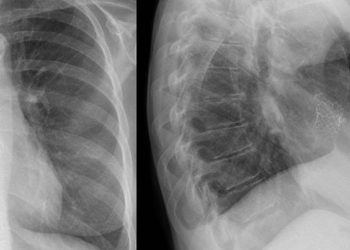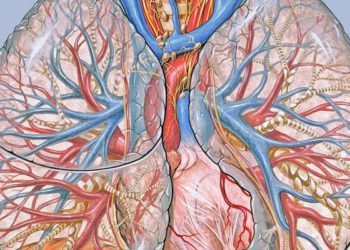Modulating lymphocyte populations decreases graft rejection in mice
Image: PD
1. A combination therapy of Campath, Rapamycin, and anti-IL-7 receptor blocking antibody induced tolerance of mismatched skin grafts in mice.
2. This combination therapy preferentially enriched T regulatory cells in a reconstituted T cell population.
Study Rundown: While early animal studies suggested that T cell depletion before allotransplantation promoted graft tolerance, similar studies in humans have not found such success. The homeostatic proliferation of T cells following depletion results in a renewed population of effector and regulatory T cells. Effector T cells are believed to drive graft rejection while regulatory T cells (Tregs) suppress such immune responses and are necessary for tolerance of transplants. It has been proposed that, after T cell depletion, biasing the T cell reconstituted population toward Tregs may reduce transplant rejections.
In this study, researchers investigated the mean survival time and tolerance of MHC mismatched skin grafts in mice. They found that depletion of the T cells alone using Campath (alemtuzumab) did not promote graft tolerance, with all grafts eventually rejected. Campath treatment followed by antibody blocking of effector T cell activity greatly enhanced graft tolerance. This study further examined the potential to control the population of T cells post ablation by targeting IL-7R and mammalian target of rapamycin (mTOR), both associated with T cell repopulation and activation. Combination treatment of blocking antibody against IL-7R (αIL-7R) and mTOR inhibitor Rapamycin after T cell depletion delayed graft rejection in one mouse model and induced tolerance in another. This treatment was shown to enrich the repopulated T cells for Tregs and to suppress expansion of some effector T cells. The tolerance effect of the combination therapy was shown to be dependent on TGF-β. Despite the short-term nature of this murine study (max survival study length: 200 days), the results show a clear benefit in early graft tolerance.
Click to read the study in the American Journal of Transplantation
Relevant Reading: Homeostatic proliferation of lymphocytes results in augmented memory-like function and accelerated allograft rejection
In-Depth [animal study]: This study examined the survival time of MHC mismatched skin grafts in homozygous and heterozygous mice transgenic for hCD52 expression in T cells. Graft survival studies were completed over periods of time ranging 50 to 200 days. During transplantation, full thickness tail-skin was grafted to the thoracic flank of the recipient mouse. Rejection was considered when no donor skin was visible at the suture site. Tolerance was defined as graft survival greater than study length. T cell populations were evaluated from pooled spleens and nodes and in vivo T cell proliferation was evaluated using two separate in vivo labeling and sorting procedures. Graft survival events and significance were evaluated by log-rank Mantel-Cox tests. Comparisons among were made using one-way analysis of variance and Bonferroni’s posttests. Campath treatment followed by αIL-7R and Rapamycin (combination therapy) significantly increased graft mean survival time (MST) when compared to Campath treatment followed by Rapamycin alone (MST 56 days, p = 0.001). Combination therapy also increased tolerance, with two thirds of mice exhibiting MST > 100 days. T cell populations after combination therapy were enriched for Foxp3+ Tregs by reduced presences of CD4+ and CD8+ effector T cells. Neutralization of TGF-β significantly decreased graft survival time in mice treated with combination therapy (p = 0.032) and no tolerance events occurred.
More from this author: Adding Evolocumab to statin therapy further decreases LDL-C levels, Genetic variant linked to poor patient survival following lung transplantation, Genetic variations may predict outcomes for colorectal cancer patients, Neuroendocrine tumor marker pancreastatin may be predictive of survival, Initial kidney transplant factors may provide insight into retransplant success
©2012-2014 2minutemedicine.com. All rights reserved. No works may be reproduced without expressed written consent from 2minutemedicine.com. Disclaimer: We present factual information directly from peer reviewed medical journals. No post should be construed as medical advice and is not intended as such by the authors, editors, staff or by 2minutemedicine.com. PLEASE SEE A HEALTHCARE PROVIDER IN YOUR AREA IF YOU SEEK MEDICAL ADVICE OF ANY SORT.



![2 Minute Medicine: Pharma Roundup: Price Hikes, Breakthrough Approvals, Legal Showdowns, Biotech Expansion, and Europe’s Pricing Debate [May 12nd, 2025]](https://www.2minutemedicine.com/wp-content/uploads/2025/05/ChatGPT-Image-May-12-2025-at-10_22_23-AM-350x250.png)



